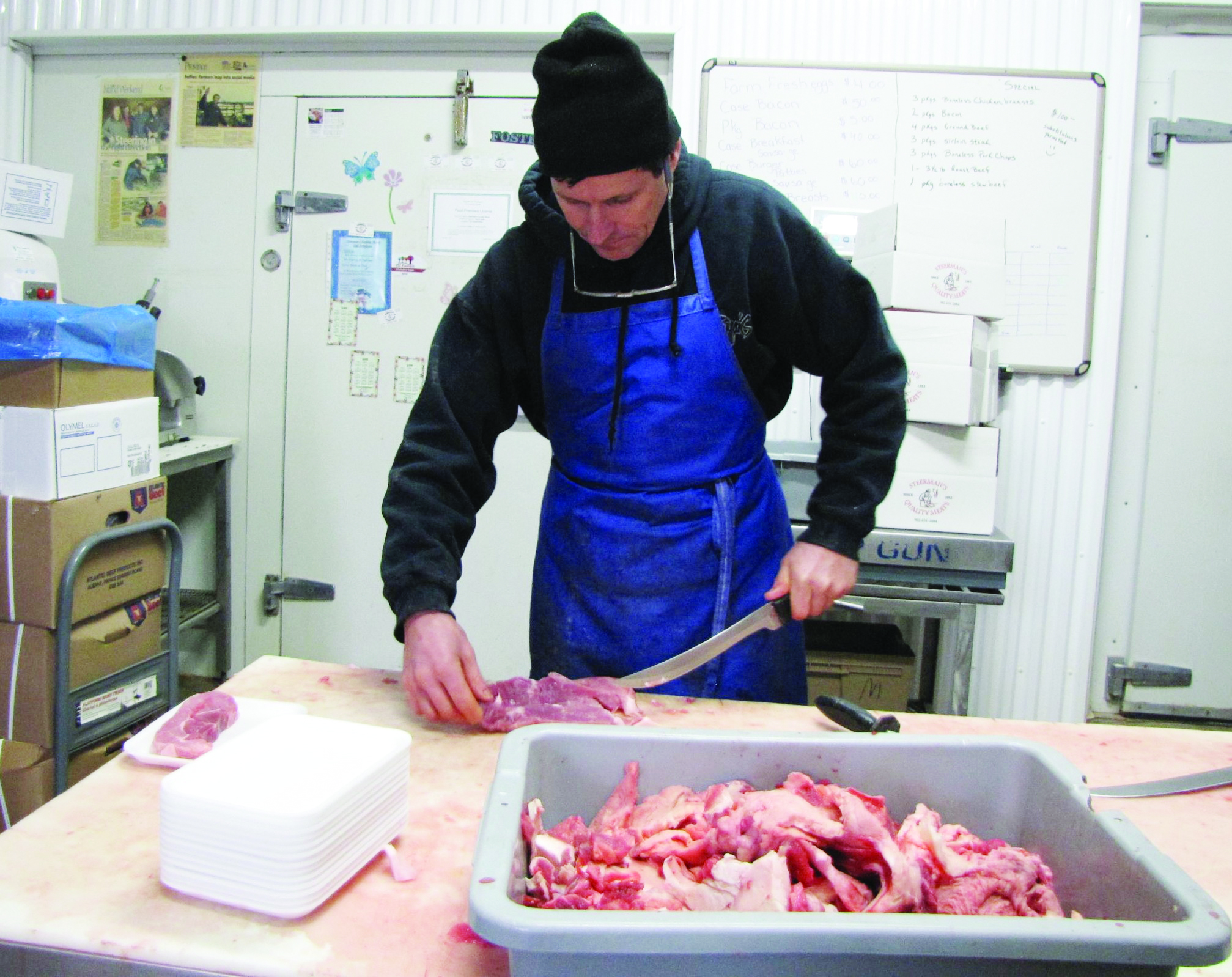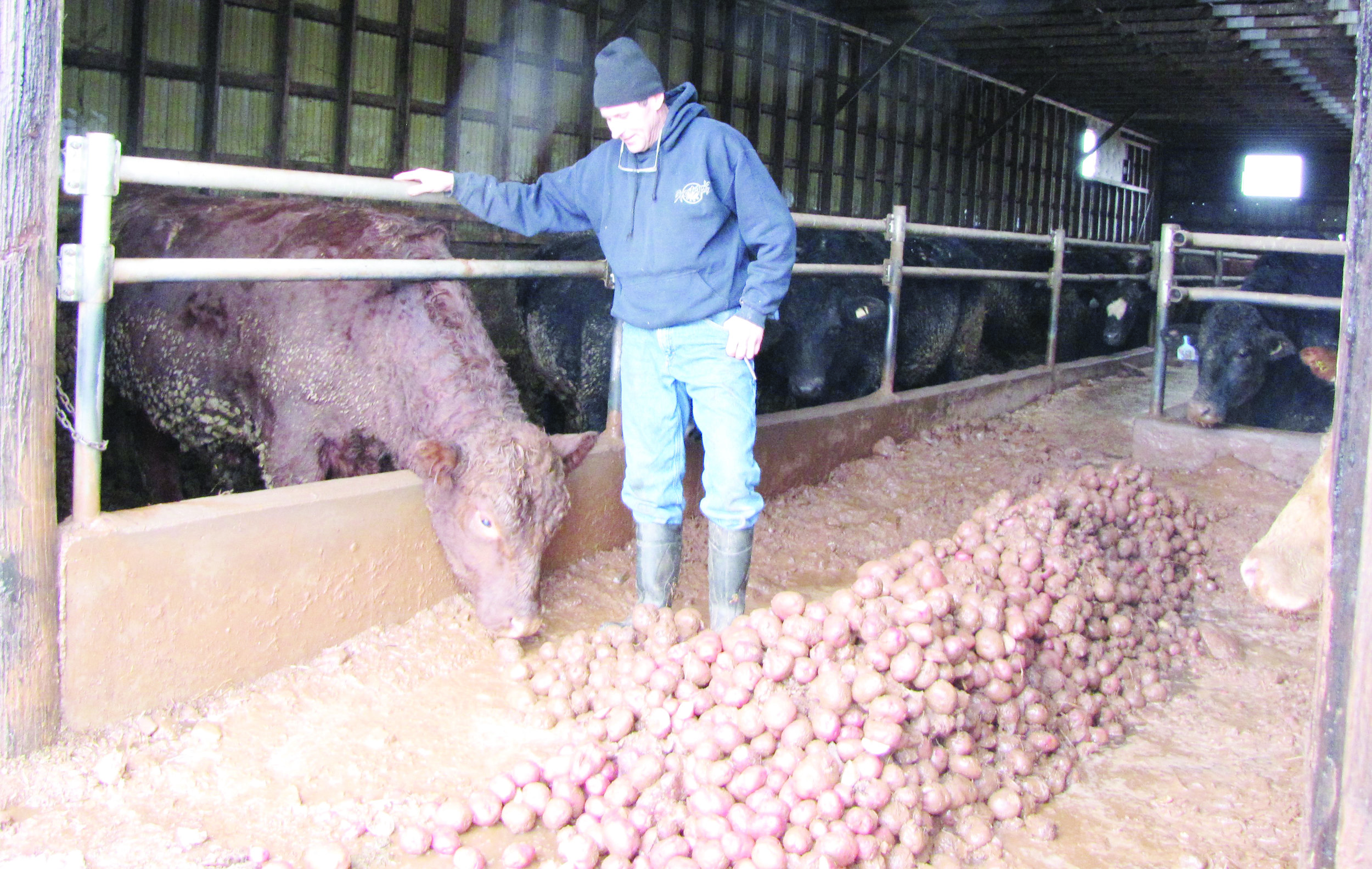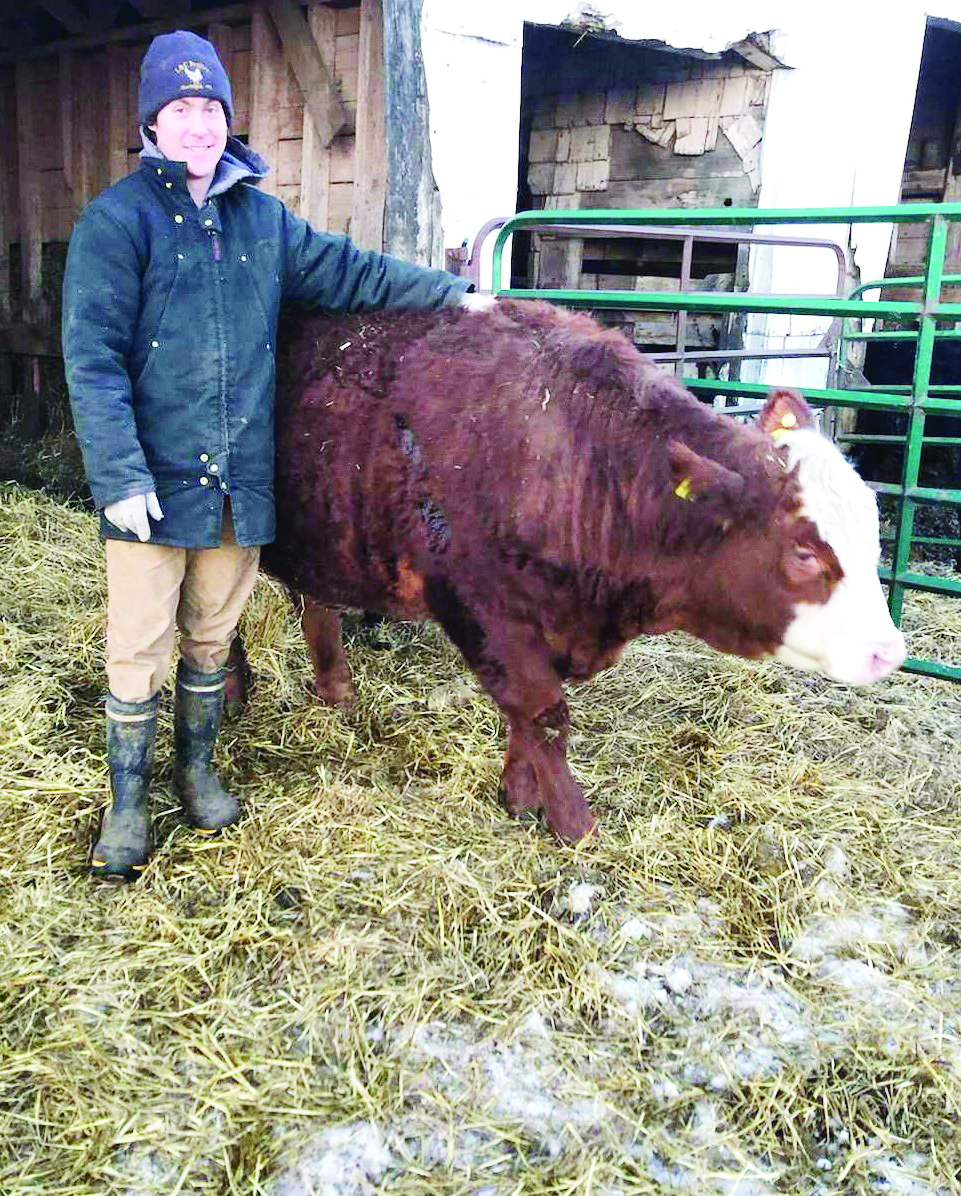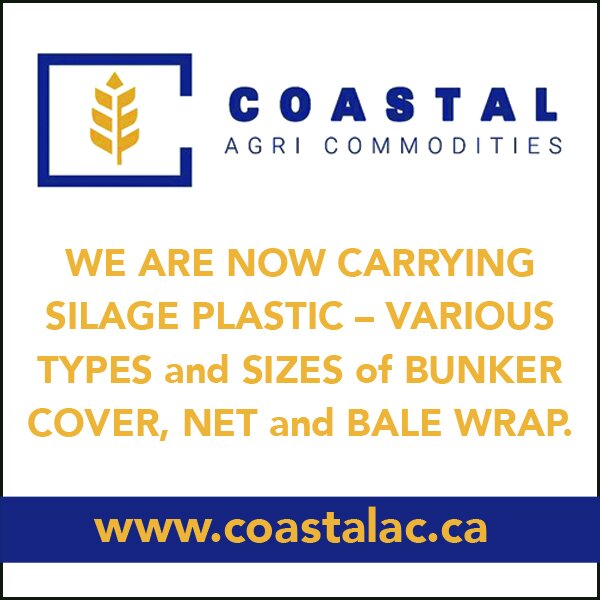Buy local movement has boosted Island beef operation
/by Kathy Birt
Matthias Drake, 22, is the fifth generation on the family farm on Drake Road in Millview, P.E.I. Scott Drake, Matthias’s dad, is the go-to guy for meat from their 300-head beef operation. With a meat shop on the farm since 1992, Scott said he learned the meat-cutting business by working with Shaw Meats in Lorne Valley, and also by working alongside his father and grandfather while growing up. With both his father and grandfather in the meat business, he had plenty of opportunity to nurture and perfect his meat-cutting skills.
Scott’s wife Debbie is just as involved as he is. She’s on the road daily with the farm van making deliveries.
The meat shop is an active and lively spot, with two employees involved in cutting and packaging. Mitch Vangorkum handles some of the larger cuts and passes the meat on to Scott, who does the final cuts. When the meat is ready, Scott’s niece Melynda Drake-Pirch skillfully does the packaging.
Animals are about 18-months-old going to slaughter and getting them there is part and parcel of what Matthias works at daily. His day begins around 7:30 a.m. and feeding is his biggest job during the winter months. “If I have bigger projects, like a delivery to the Borden beef plant, I’m up ’round 5 or 6 a.m.,” he said.
Matthias attended Dalhousie University’s Agricultural Campus, and Scott said there was an opportunity for his son to come back to the farm and work full time. “Then another paycheque had to be generated,” he said. “Matthias is the main thrust in getting the day-to-day work done. We sometimes hire a worker to help him out.”
The farm and meat shop in Millview, operating under the name Steerman’s Quality Meats, buys young feeder cattle and raises them to slaughter. Usually buying local, Scott noted that some calves come from Nova Scotia and New Brunswick.
Scott said they’ve come a long way since the meat shop’s early days. “There is more branding, and we have worked on our marketing,” he said. “Back in 1992, all meat was cut off-site, but as demand grew and evolved, it made better sense to have my own shop to better meet the customers’ needs.”
He said the buy local movement was good for their business. “People want to know where their food is coming from – what’s in it,” he said. “They like to buy from the neighbourhood – from people they know and trust.”
Scott said the farm’s Facebook page and other social media helped grow the business. “We began to get younger customers,” he said. “Our main demographic is now younger women with small families.”
The meat shop has 30 commercial customers – mainly restaurants and nursing homes – and about 300 household customers. “I’m in Charlottetown every day delivering,” said Debbie, adding that their household customers are very obliging. “They make plans to meet me at a certain location in town. Obviously, we can’t deliver to all individual homes. So it makes sense to have these arrangements.”
Crucial to building the farm meat business is to always deliver a fresh product. Hence, the daily deliveries and once-a-week trip to the Atlantic Beef Products plant in Albany, near Borden-Carleton, for processing. Some of the products customers want include stew meat, roasts, steaks, and burger patties. The Drakes also source pigs and eggs from surrounding farms, and often sell pork chops and chickens. “Matthias raises some chickens here on the farm,” said Scott.
While most of Debbie’s delivery days are spent in Charlottetown, she does spend one day a week in Montague and one day a month in Summerside.
Scott said they initially spent a day or two a month out and about marketing their product. “No doubt this has helped establish the name and people came looking,” he said.
The Drakes grow 400 acres of silage, and harvesting is done in June and August. “We hire some seasonal help at that time,” said Scott.
The cattle go to pasture in late May and are back in the barns near the end of October. “Two-thirds of the herd goes to grass to grow them stronger,” said Scott. The animals are fed twice daily with silage and minerals. Matthias takes care that the bale feeder is replenished, noting, “I can also do some forking of hay from the centre of bales if necessary.” The huge herd also eats upwards of a tonne and a half of potatoes daily, with plenty of corn silage thrown in.
Scott said a key part of the family business is sharing equipment. He buys in partnership with his brother Francis and a cousin, both of whom are farmers. “We each own a third of the equipment,” said Scott, adding that his father shared with a brother. They also share the work of the harvesting season.
The Drakes have a TMR (total mixed ration) mixer on the farm to improve feed efficiency and minimize labour.
While feeding efficiency is important, it’s also important to get the cattle to the meat plant in top form.
“I like to get up and back before the heavy traffic,” said Matthias, adding that a smooth ride is better for the animals. “If there is a lot of stopping and jigging around, it can spook the animals. I like to have the cows walk off (the truck) quietly. We like to keep the animals happy. And that works out on the books as well. There is a whole pile of people watching you.”
By that, he means Canadian Food Inspection Agency (CFIA) employees. “We have CFIA people looking over our shoulder,” he said. “So a quiet ride and animals not breaking out of the truck is important. There is always potential for a freak accident. CFIA is right there checking all animals as they come off the truck. I just make sure everything is right.”
“We keep things sustainable and work to support Island communities,” said Scott. “There is a lot of spin-off jobs from our business.” He added, “We have to watch things carefully, and find a margin to make a living.”










